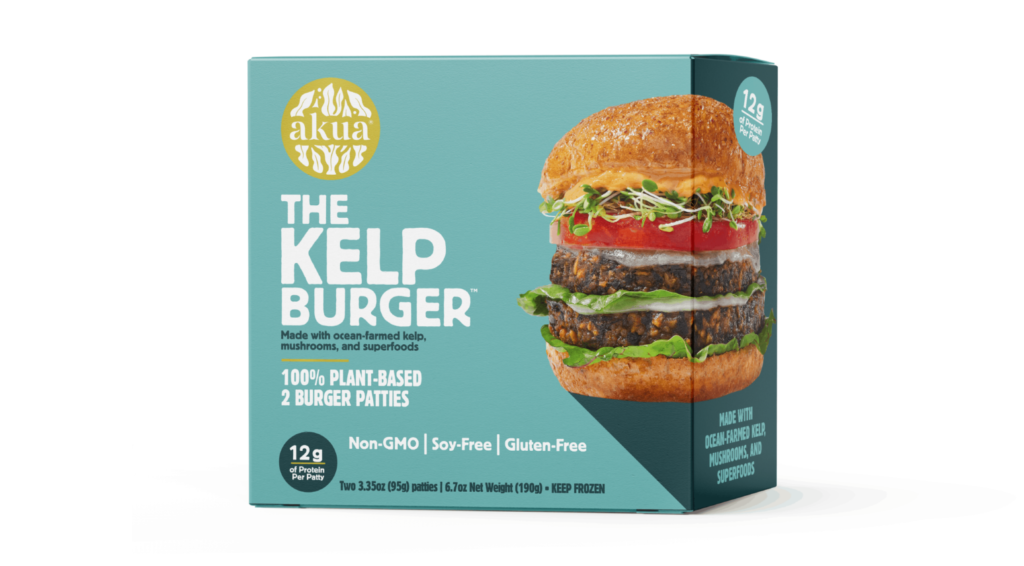Beans, soy, tofu, mushrooms and pea protein are some of the most common ingredients in meat analogues, but kelp could soon be added to that list. AKUA, a New York-based alternative meat company, is hopeful that its kelp burgers will be the next trend in plant-based meat. Vibrant Ventures — a venture capital firm that focuses exclusively on plant-based investments — shares the same optimism.
Last Friday, AKUA announced a $3.2 million seed round, led by Vibrant Ventures, bringing the company’s total funding to $5.4 million. Its first seed round, in January 2020, was led by the Sustainable Ocean Alliance, a group focused on developing solutions to protect and sustain the ocean. Its other backers include pre-seed investors, capital from a Republican campaign and investments from the co-founders.
Aiming to solidify a prominent place in the booming plant-based meat market, AKUA came out with its first product in 2019 — Kelp Jerky. The jerky comes in four flavors, including Sesame & Nori Sea Salt and Rosemary & Maple BBQ, and features a soft and chewy consistency. Each 43-gram bag contains between 150 and 160 calories, 8 grams of fat and boasts a slew of vitamins and minerals, like iron, thiamine and riboflavin.
Related: Will Plant-Based Meat Prices Ever Be Lower Than Real Meat?
After finding success with Kelp Jerky, AKUA’s co-founder, Courtney Boyd Myers, wanted to expand the possibilities of kelp as a nutritious and sustainable ingredient. From there, The Kelp Burger was born. Debuting in May 2020, The Kelp Burger launched online and in select restaurants, but would later hit the frozen section of US grocery stores.
To stay competitive with its alt-meat counterparts, The Kelp Burger is vegan, non-GMO, gluten-free and soy free. Many meat alternatives are known to have hard-to-pronounce ingredients and chemical preservatives in them, which can defeat the purpose of seeking out a healthier option. But the Kelp Burger is made with ocean-farmed kelp, along with cremini mushrooms, pea protein, black beans, quinoa, potato starch, tomato powder and other familiar, food-derived ingredients and flavorings.
AKUA says its burgers are healthier and more sustainable than existing veggie patties since kelp requires no fresh water, feed, fertilizer or arable land. Not only that, but kelp helps to keep oceans healthy by filtering carbon and nitrogen from the water. Scientists estimate that seaweeds of all kinds, including kelp, eliminate nearly 200 million tons of greenhouse gas every year. Kelp is also nutrient-rich for humans, containing vitamins A, B6 and K, as well as zinc, calcium, folate and potassium.
In addition to the jerky and burger, AKUA’s portfolio also includes Kelp Pasta. The latest funding will be used on research and development for new products in the areas of alternative meat and plant-based seafood, such as a kelp crab cake that it plans to release in the second quarter of 2022. The funds will also be allocated toward hiring talent to ramp up marketing and sales.
The global meat substitute market was valued at $4.51 billion in 2019 and is estimated to hit $8.82 billion by 2027, with a compound annual growth rate (CAGR) of 7.2 percent. Time will tell whether AKUA’s Kelp Burgers and other kelp-derived products will become a major player in the crowded market, or whether they will sink to the bottom of the sea.












Join or login to leave a comment
JOIN LOGIN